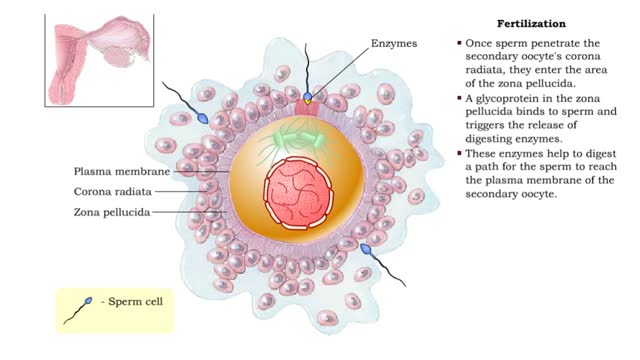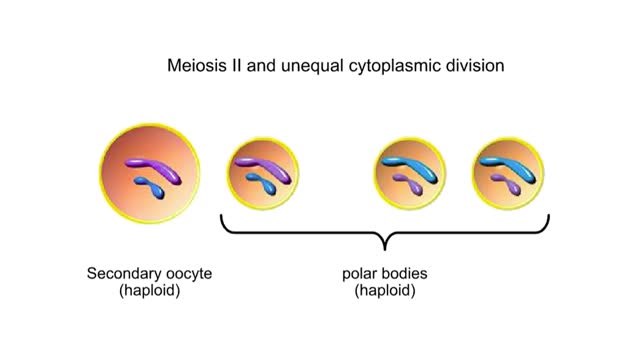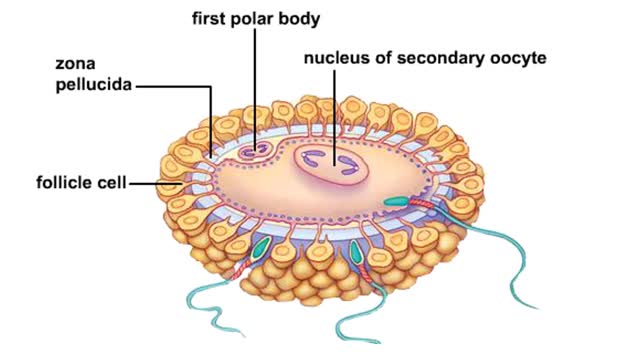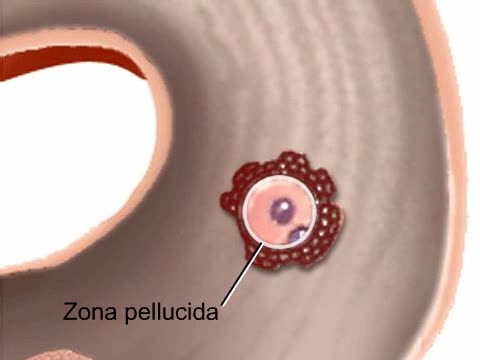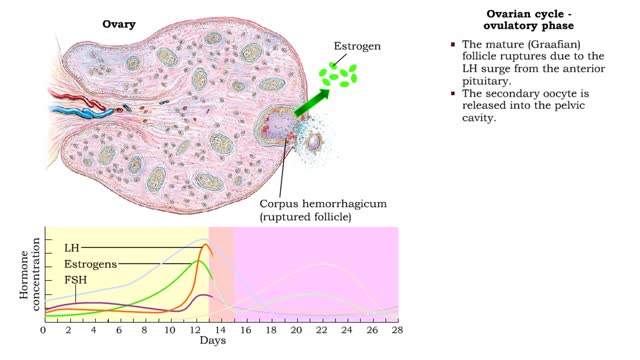Search Results
Results for: 'ovum'
By: HWC, Views: 11492
• Fertilization is the process by which the two gametes from the parents fuse their genetic material to form a new individual (zygote). • Fertilization requires that sperm cells swimming through the uterine tube contact a secondary oocyte. • Once sperm penetrate the secondary oocyte's ...
Egg and Sperm Formations in Animals Animation
By: HWC, Views: 5507
Inside the ovaries of a female animal are diploid germ cells called oogonia. An oogonium grows to become a primary oocyte. This large cell is still diploid. Meiosis I followed by unequal cytoplasmic division produces one large secondary oocyte and a smaller polar body. Both are haploid. ...
Rh blood type and complications during pregnancy & Fertilization
By: HWC, Views: 8571
Complications can arise if an Rh- woman is impregnated by an Rh+ man. The fetus maybe Rh+. During childbirth, some of the fetal Rh+ cells may leak into the maternal bloodstream. The woman's immune system views the Rh+ as foreign and makes antibodies against it. If the woman becomes pr...
By: Administrator, Views: 560
At conception, the gender and other biologic traits of the new individual are determined. The zygote is genetically complete and immediately begins to divide, forming a solid mass of cells called a morula. When the developing embryo (stage of development between weeks 2 and 8) reaches the ute...
By: HWC, Views: 11434
• The ovarian cycle is a monthly sequence of events, consisting of three phases: • Preovulatory • Ovulatory • Post ovulatory Preovulatory phase • prior to ovulation: Primary follicles develop into secondary follicles. • Follicular cells surrounding the primary oocyte In...
Advertisement



